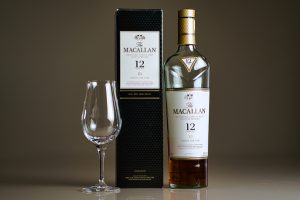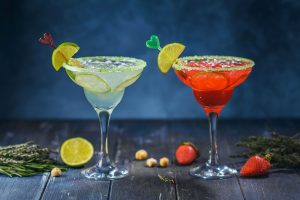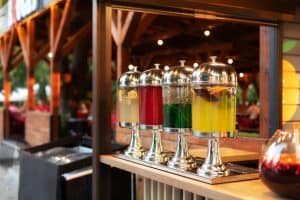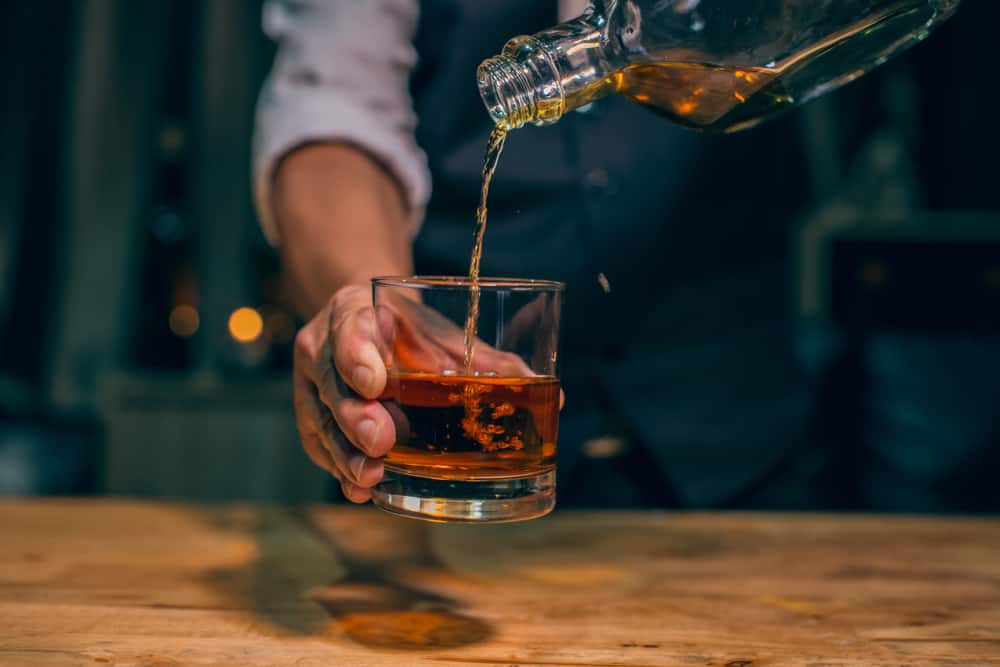
Most people don’t think about why whiskey is brown, they just care about the taste. But have you ever wondered why whiskey is brown? There are actually a few reasons for this.
Whiskey is brown because of the way it is produced. During the distilling process, whiskey is exposed to wood barrels, which give it its characteristic brown color. The type of wood used for the barrel also contributes to the final color of the whiskey.
From artificially colored whiskeys to natural-hued ones, many factors determine the final color of a whiskey.
This article will explore the science behind why whiskey is brown and how it affects the spirit’s flavor.
What Gives Whiskey Its Brown Color?

Whiskey is made from a fermented mash of grains, typically including barley, corn, rye, and wheat. The type of grain used affects the flavor of the whiskey. But where does the color of whiskey come from?
Aging Process
As whiskey ages in wooden barrels, it slowly takes on the color of the wood. Therefore, the type of wood used for the barrel is one of the main factors determining the whiskey’s final color.
Oak is the most popular type of wood used for whiskey barrels. American white oak is often used for bourbon, while European oak is used for Scotch whisky. Each type of oak imparts different flavors and colors to the whiskey.
In addition to the type of wood used for the barrel, other factors can influence the final color of whiskey. For example, the amount of time the whiskey spends in contact with the barrel, size, and shape can all play a role.
Colorless whiskey is also sometimes produced. This type of whiskey is typically made using column stills and is not aged in barrels. As a result, it does not take on the brown color characteristic of other whiskeys.
Artificial Coloring
While the vast majority of whiskeys are brown, there are some exceptions. For example, some producers add artificial coloring to their whiskey to make it more consistent.
The addition of artificial coloring is most common in lower-quality whiskeys that are mass-produced.
While using artificial coloring is not necessarily an indication of poor quality, it can be considered a shortcut that does not result in a natural product.
Natural Colorants
Some producers also use natural colorants to achieve the desired hue for their whiskey. These colorants are typically derived from fruits or vegetables and added during aging.
Natural colorants are less common than artificial ones but are used to produce a more natural-looking whiskey.
Does the Color of Whiskey Matter?

Yes, the color of whiskey does matter. The color can affect the flavor and aroma of the drink. It can also affect how long the whiskey will last. The different colors of whiskey come from the aging process and the oak barrel used.
Three main types of whiskey barrels are charred, toasted, and new. Each type of barrel will give the whiskey a different flavor profile.
Charred barrels
Charred barrels are the most common type of barrel used for whiskey. They are made by burning the inside of the barrel with a hot flame. This gives the whiskey a smoky flavor and a dark color.
Toasted barrels
Toasted barrels are made by heating the inside of the barrel over an open fire. This gives the whiskey a sweeter flavor and an amber color.
New barrels
New barrels have not been used before and will give the whiskey a light, fruity flavor. The color of whiskey will also be affected by how long it is aged. The longer it is aged, the darker the color will be.
How To Select the Right Whiskey for You
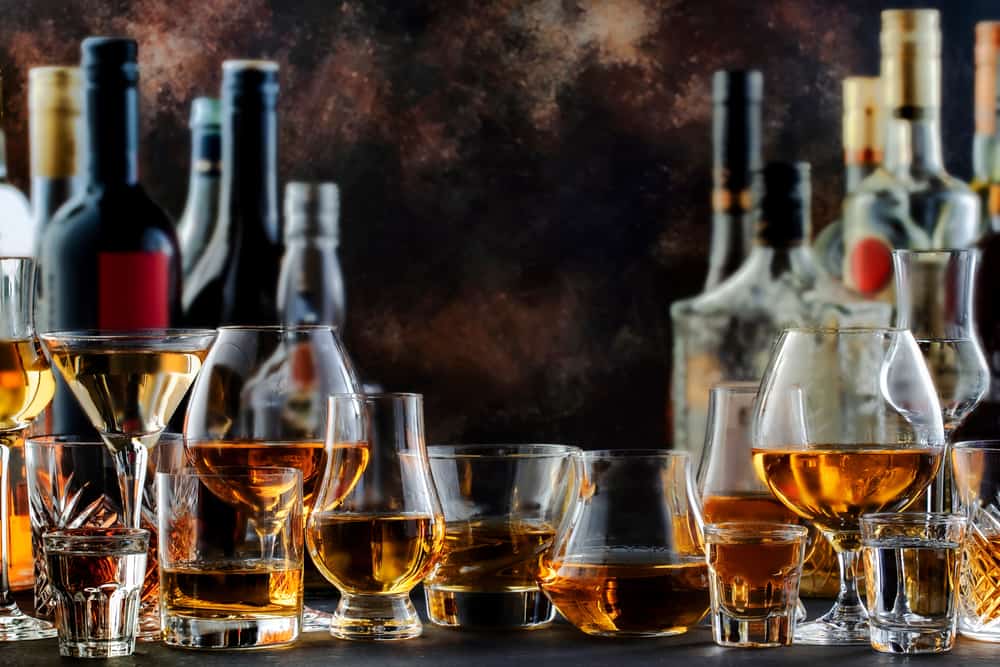
Now that you know a bit about the different types of whiskey, it’s time to learn how to select the right one for you.
The first thing you need to do is decide what kind of flavor you’re looking for. For example, do you want a smooth, mellow whiskey or a bold, spicy one?
Once you’ve decided on the flavor profile you’re looking for, you can narrow down your choices by selecting a specific style of whiskey.
For example, if you want a smooth and mellow whiskey, you might want to try a Tennessee whiskey or a Canadian whisky. On the other hand, if you want a bold and spicy whiskey, you might want to try an Irish whiskey or a rye whiskey.
It would be best if you also kept in mind the occasion for which you’re buying the whiskey.
For example, if you’re looking for a unique occasion whiskey, you might want to splurge on a bottle of single malt scotch. However, if you’re looking for a drink to enjoy at home, you might want to save money by selecting a less expensive whiskey.
Takeaway
Whiskey color can range from clear to brown and even black. Whiskey color is affected by the type of barrel and the length of time it was aged. White or unaged whiskies are typically made with unmalted grains and distilled at a lower proof than other whiskies.
When selecting a whiskey, you should first decide on the flavor profile you’re looking for. You can then narrow down your choices by choosing a specific style of whiskey. Keep in mind the occasion you’re buying the whiskey when making your selection.
Frequently Asked Questions
Whiskey has many health benefits, including the potential to improve heart health, reduce stress, and boost immunity. Additionally, whiskey is a low-calorie drink option and can be enjoyed in moderation as part of a healthy diet.
Scotch is a type of whiskey made in Scotland from malted barley. Whiskey is a broader category that includes various kinds of spirits made from different grains and aged in different types of barrels.
Bourbon is an American whiskey made from at least 51% corn. Whiskey is a broader category that includes various kinds of spirits made from different grains and aged in different types of barrels.
Whiskey can last indefinitely if stored properly. However, the flavor and quality of the whiskey will decline over time. Therefore, it’s best to consume whiskey within 5-10 years for optimal flavor.


